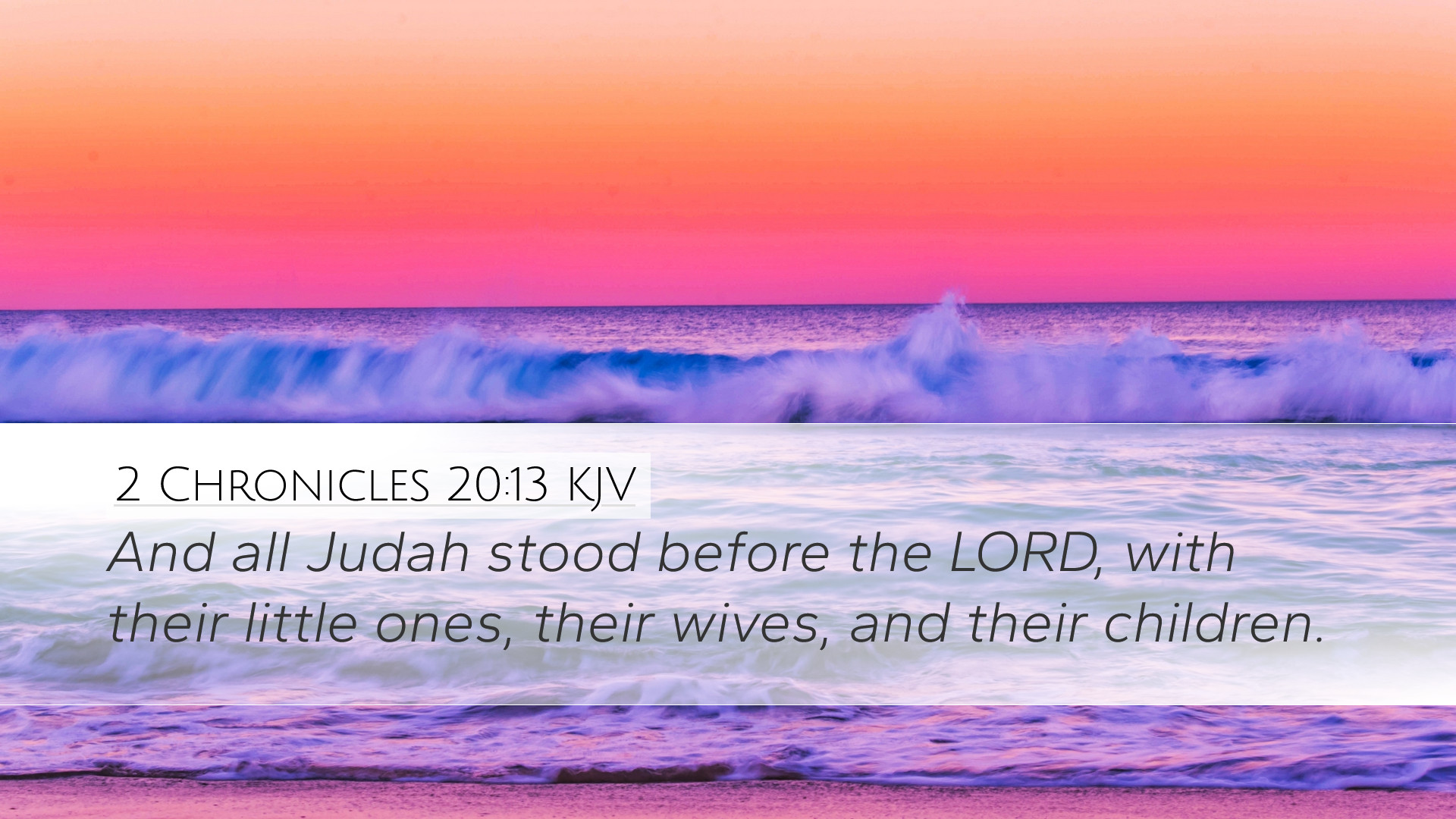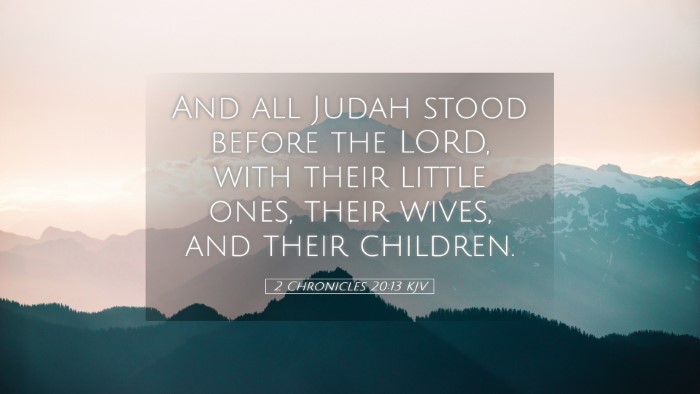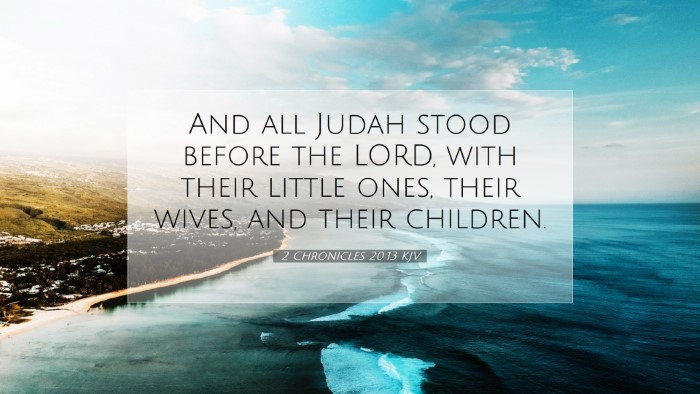Commentary on 2 Chronicles 20:13
Verse: "And all Judah stood before the Lord, with their little ones, their wives, and their children."
Contextual Overview
This verse is situated within a profound narrative of King Jehoshaphat’s reign over Judah, focusing on a critical moment when Jahaziel prophesies divine intervention against a formidable enemy coalition. The king's proactive stance in calling upon God for deliverance reveals a deep reliance on divine authority.
The Significance of Collective Worship
Unity in Crisis: This passage illustrates a central theme of collective worship in the face of dire circumstances. The entire community of Judah, including children and women, gathers to seek divine guidance. This collective action symbolizes their unity and desperation, highlighting a significant characteristic of ancient Israelite worship—the importance of coming together as a community in prayer and supplication.
Matthew Henry’s Insight: Henry emphasizes that this was not just a routine assembly but a heart-wrenching gathering in acknowledgment of their need for God’s intervention. The inclusion of children reflects a passing of faith and reliance on God from one generation to the next.
God’s Responsive Nature
The gathering of all members of society shows God’s inclusiveness in covenant community. God’s response to prayer is a recurring theme throughout Scripture, emphasizing His readiness to support His people when they seek Him fervently.
Albert Barnes’ Commentary: Barnes points out that the presence of families highlights the idea that prayer and faith should be shared within households, demonstrating that reliance on God is not an individual but a communal endeavor.
Implications for Leadership
Jehoshaphat's Leadership: The king’s decision to assemble the people illustrates a model of godly leadership. He recognizes that spiritual strength stems from unity with God. Jehoshaphat's act of leading his people into prayer and seeking God’s guidance showcases a leader’s role in communal faith practices.
Adam Clarke’s Remarks: Clarke notes that leaders should inspire faith among those they lead. Jehoshaphat sets an example of relying on God publicly, encouraging the populace to trust in divine providence even in hopeless situations.
Inclusivity in Prayer
The assembled individuals from every demographic signify the equal footing of all believers before God. This shows that approaches to God do not discriminate based on age, status, or gender. Each person, regardless of their role in society, has access to God’s favor through prayer.
Covenant Community and Its Importance
Corporate Worship: This event emphasizes the significance of corporate worship. As the people gather, it serves as a reminder that they are bound by their mutual covenant with God. Their collective act of standing before the Lord depicted unity and acknowledgment of their dependence on Him. It reflects a critical principle of faith—the necessity of coming together as a body to call upon God.
Lessons Learned
- The Power of Assembly: The gathering illustrates the power of community in prayer, a vital lesson for modern believers.
- Role of Families in Faith: The emphasis on families being present underscores the importance of cultivating faith within the home.
- Leaders as Exemplars: The example of Jehoshaphat showcases how leaders influence their communities towards spiritual reliance.
- Inclusiveness of the Gospel: The gathering reflects a broader inclusiveness of God’s calling; all are invited to bring their concerns to Him.


